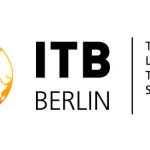
The 10 Biggest Mistakes in Revenue Management (Part 1)
In the dynamic world of hospitality, competent revenue management is crucial to achieving optimal occupancy and profitability. Jan M. Reiländer, Chief Portfolio Manager at HotelPartner Revenue Management, is a recognized expert in this field and is well acquainted with the common mistakes that often occur in practice. With over a decade of experience in upscale hospitality and his role as a lecturer in Revenue Management at the prestigious Hotelfachschule Hamburg and DEHOGA Berlin, he brings comprehensive expertise. In this article and Part 2 of the short series, learn from Jan with concrete examples about the revenue management mistakes to avoid and how to do it better.
Read here:
Mistake Number 1: Inadequate Data Analysis
Mistake Number 2: Lack of Market Knowledge
Mistake Number 3: Insufficient Segmentation
Mistake Number 4: Outdated Technologies
Mistake Number 5: Short-Term Thinking
Discover the remaining Mistakes 6-10 in the second part of this series.
1. Inadequate Data Analysis

Often, not enough time is invested in data analysis to make informed revenue management decisions. This can lead to incorrect conclusions and associated revenue losses.
Practical Example: A hotel consistently prices Saturdays too low, despite high demand, because insufficient analysis was done on when guests book which days.
HotelPartner Tip: Invest sufficient time in data analysis and use contemporary tools to make precise decisions. Focus on what your guests are willing to pay, the weekly occupancy, average length of stay, and ADR (Average Daily Rate) you achieve during different seasons. It’s recommended to conduct larger analyses quarterly and review your KPIs at least once a month, adjusting as needed.
2. Lack of Market Knowledge

Lack of knowledge about the local market can lead to inaccurate pricing decisions. It is crucial to be aware of competition and local events.
Practical Example: A hotel sets prices for a weekend without considering a major conference taking place in the city at the same time. The high demand was completely underestimated.
HotelPartner Tip: Actively gather information about local events and your competitors’ behavior in different market situations. Adjust your pricing strategy accordingly. Understand your guest target audience and competitors, as well as your position in the market. Are you a price leader or following market behavior? Monitor your competitors’ pricing trends over defined periods using rate-shopping tools. Subscribe to newsletters from venues or use trade fair portals to anticipate potential demand peaks.
3. Insufficient Segmentation

Guests have different preferences and willingness to pay. Treating all guests the same can result in missed revenue opportunities; careful segmentation allows for more targeted pricing.
Practical Example: A hotel offers the same price for business travelers and vacationers, even though these groups have different budgets and needs. The same product has a different value for each guest group.
HotelPartner Tip: Divide your target audiences into segments and adjust your pricing strategy to the specific requirements of each group. First, assess the benefits your product brings to each guest segment and then consider which segments to target. This could include trade show attendees, private or business travelers, city explorers, weekend excursionists, or romance enthusiasts. Make initial assumptions about your guests and let the front office segment your guests by asking about the purpose of their stay. Capture such data to draw conclusions about who books what when.
4. Outdated Technologies

The use of outdated or inefficient technologies can hinder the effectiveness of hotel revenue management. Modern systems and tools are crucial for quick responses and gaining a competitive advantage.
Practical Example: A hotel still uses manual, static methods such as Excel spreadsheets for pricing, and revenue managers manually input price changes into various booking systems due to a lack of a channel manager. This inability to react quickly to short-term demand fluctuations leads to either losing bookings to competitors or underselling rooms.
HotelPartner Tip: Invest in modern revenue management software and training for your team to act quickly and efficiently. If you’ve been doing everything manually, start with at least a current PMS, a channel manager, and a rate-shopping tool – preferably all-in-one to avoid isolated solutions. While these tools require training and maintenance, they greatly support you in analyzing large amounts of data and making appropriate pricing decisions and adjustments across all channels around the clock, even while you sleep. HotelPartner offers such a comprehensive tool paired with revenue management experts who take care of your support and ongoing strategy adjustments, allowing you more time to be a gracious host.
5. Short-Term Thinking

Excessive focus on short-term gains can lead to long-term revenue losses. It is important to consider long-term strategies in revenue management.
Practical Example: Due to stagnant demand, a hotel drastically lowers prices to generate more bookings in the short term, neglecting long-term profitability and eventually damaging its own price level.
HotelPartner Tip: Consider long-term goals when setting your pricing strategy and avoid excessive reactions to short-term fluctuations. Drastic price reductions should be approached with caution. While they may be successful in the short term, they can work against your long-term strategy of increasing prices by x%. Also, be cautious not to attract guests with such actions who do not align with your product. Take note of your booking lead time and, if necessary, endure demand-lower periods to preserve your pricing strategy in the long run.
As you’ve already discovered, successful revenue management comes with many potential pitfalls, but now you have concrete approaches to avoid them. You’ve learned about the first 5 classic mistakes in this article; click here for Part 2 of this small series on the 10 biggest mistakes in revenue management by Jan M. Reiländer. If you want to set up your revenue management based on data and be guided by experts who know how to avoid the mentioned pitfalls, feel free to contact us for a non-binding inquiry.
Your Jan M. Reiländer from HotelPartner









